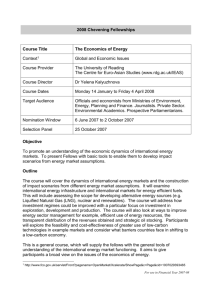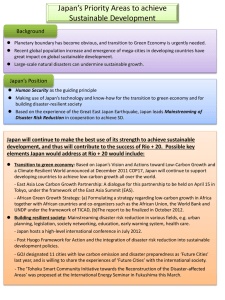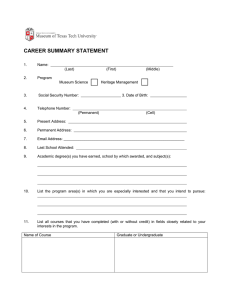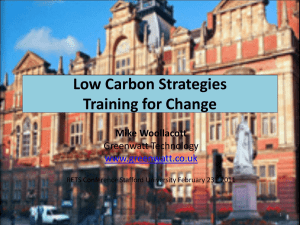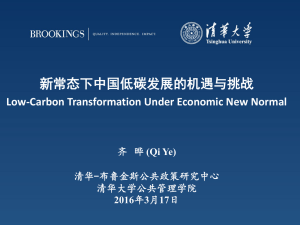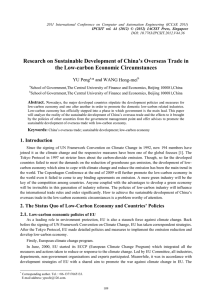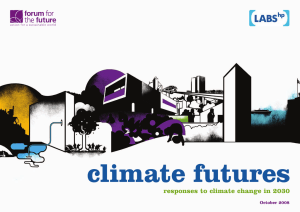Future Trends Series - GR:EEN Project
advertisement
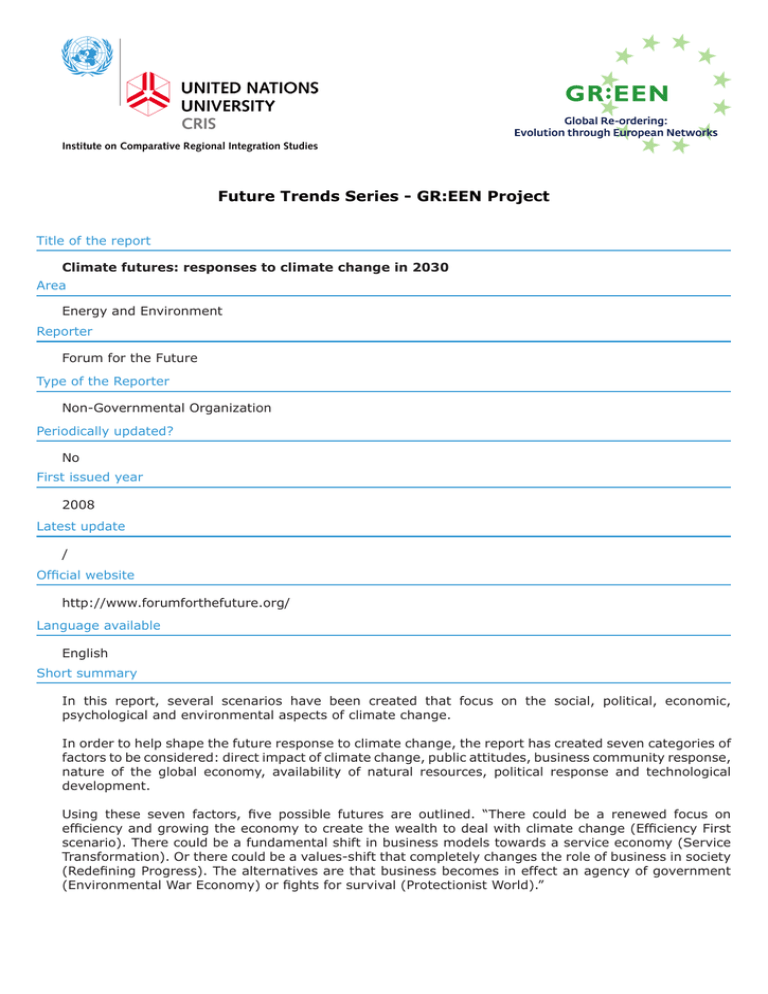
Future Trends Series - GR:EEN Project Title of the report Climate futures: responses to climate change in 2030 Area Energy and Environment Reporter Forum for the Future Type of the Reporter Non-Governmental Organization Periodically updated? No First issued year 2008 Latest update / Official website http://www.forumforthefuture.org/ Language available English Short summary In this report, several scenarios have been created that focus on the social, political, economic, psychological and environmental aspects of climate change. In order to help shape the future response to climate change, the report has created seven categories of factors to be considered: direct impact of climate change, public attitudes, business community response, nature of the global economy, availability of natural resources, political response and technological development. Using these seven factors, five possible futures are outlined. “There could be a renewed focus on efficiency and growing the economy to create the wealth to deal with climate change (Efficiency First scenario). There could be a fundamental shift in business models towards a service economy (Service Transformation). Or there could be a values-shift that completely changes the role of business in society (Redefining Progress). The alternatives are that business becomes in effect an agency of government (Environmental War Economy) or fights for survival (Protectionist World).” Key trends Efficiency First • Rapid innovations in energy efficiency and novel technologies have enabled a low-carbon economy with almost no need for changes in lifestyle or business practice. • The result is an increasingly individualistic, consumerist and fast-moving world, but overall levels of growth mask a growing divide between rich and poor people. • While some call this a golden age of technology and freedom, others are anxious about its fragility. Service Transformation • Due to the increasingly high price of carbon, companies have been forced to rewrite their business models to meet underlying needs, often by selling services instead of products. Redefining Progress • Rather than commercialism and consumerism, new priorities of ‘wellbeing’ and ‘quality of life’ are promoted. • Countries now prioritise economic and social resilience over the idea of economic growth. • Individuals are forced to scale down consumption and prioritize meeting their immediate needs. Environmental War Economy • Tough measures are adopted to combat climate change, pushing markets to the very limit of what they can deliver. • The state takes on a stronger role, forcing whole industry sectors to reduce their climate change impacts, even monitoring carbon levels within individual homes. Protectionist World • Globalisation will retreat as countries pursue security and access to resources at any cost. • Accusations of cheating in the carbon markets and ‘secret’, undeclared power stations collapse cooperation into factions. • Competition and conflict drives up prices, discourages trade, hampers long-term planning and spreads disease that maintains hunger and misery for millions. • Governments focus on securing supplies by hoarding assets, curbing exports and protecting their own economies through high import tariffs. • Financial hardship and empty markets give rise to nationalism and social unrest; restrictive security; and sustained conflict over precious supplies. Suggestions In light of the findings, the report suggests several opportunities businesses should pursue: • Build long-term strategies that acknowledge uncertainty and build in adaptability rather than waiting for a crisis to intensify • Drive carbon efficiency through their supply chains, emphasise the long-term commercial necessity of taking action and explore opportunities for low-carbon technology • Support changes to markets now, in order to avoid tight regulatory constraints later • Maintain fair global trade, foster links between cultures and find ways to share the proceeds of growth within and between countries Methodology Research from primary sources, research from secondary sources, modelling Reference to other trends reports? If yes, which reports? - United Nations. (2004) World Urbanization Prospects – the 2003 Revision.

